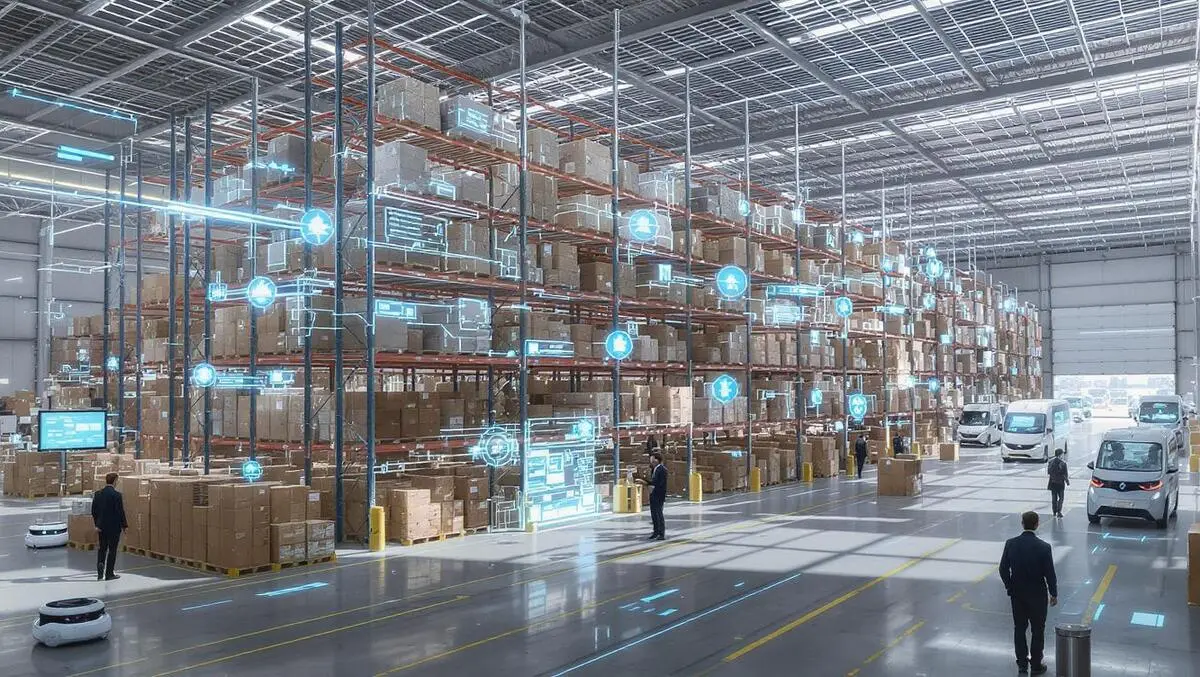
AI & sustainability challenges grow for transport managers
New research reveals that while most organisations in sectors such as manufacturing, retail and consumer goods expect to adopt fully autonomous artificial intelligence in transportation management within five years, almost all face significant barriers to that adoption.
Visibility and operational challenges
According to a study conducted by Manhattan Associates in collaboration with Vanson Bourne, 61% of organisations predict that Agentic AI - technology capable of independently achieving specific transportation goals - will be operational by 2030. However, just 37% have already deeply integrated AI and machine learning into their transportation management systems (TMS).
The survey included responses from 1,450 senior decision-makers across North America, Latin America, Europe, and Australia, working in sectors such as retail, wholesale, consumer goods, grocery, and manufacturing. The research explored ongoing operational challenges, including rising complexity, regulatory demands, and evolving expectations around AI.
Operational visibility remains an area of concern. While 60% of respondents said that increased visibility leads to greater customer satisfaction through more accurate and timely updates, fragmented or disconnected systems have limited their ability to gain actionable insights. This lack of connectivity contributes to high costs: 48% of organisations stated that over 10% of their transportation logistics budget is spent on addressing errors and disruptions.
"Transportation is the backbone of supply chains, essential to ensuring goods are delivered on time to meet customer expectations," commented Bryant Smith, Director, Transportation Management Systems at Manhattan Associates. "Yet, managing transportation is becoming increasingly complex, pressured by demands on shorter fulfilment times, capacity and cost efficiencies, tighter sustainability regulations and the growing necessity for access to end-to-end visibility across all operations," Smith added.
AI integration and adoption
The findings show considerable excitement about the potential of Agentic AI, but also a notable gap between expectation and readiness. Though 61% foresee autonomy within five years, 99% of organisations anticipate - if not already experiencing - major hurdles. Key concerns include a shortage of skilled labour and expertise (49%), integration difficulties (44%), and challenges related to data quality and availability (44%).
Only 48% of respondents claim that their organisation is well-prepared for autonomous agents by 2030, indicating a lag in practical deployment compared to optimism about future capabilities.
The report suggests that organisations slow to adapt risk ceding market share to competitors who are more advanced in deploying autonomous systems.
Sustainability pressures
An emphasis on sustainable transportation is evident. The majority (69%) of organisations say sustainability is either a mandate or an area of significant operational pressure, and 62% are already engaged in Corporate Sustainability Reporting Directive initiatives. Nonetheless, just 34% have effectively embedded sustainability in operational planning, and even fewer in procurement decisions (30%) or through carbon-friendly fuel choices (31%).
Maintaining compliance with evolving sustainability requirements is the most frequently cited constraint likely to impact performance over the next five years, highlighting a gap between aspiration and practical implementation.
Many businesses see an opportunity for improvement through technology. A modern TMS, according to the findings, can provide the data visibility and functionality necessary to track progress and support compliance.
Strategic focus and future outlook
The perception of transportation management's importance is growing. While 78% currently view transportation management as a strategic imperative, this climbs to 86% in projections for 2030. There is also confidence that advances in planning, forecasting, and modelling - supported by AI - will deliver financial benefits, with 82% believing they can reduce freight costs by at least 5% within five years.
Operationally, organisations continue to face pressing challenges. Half report difficulties with proactively rerouting shipments, and similar numbers say they struggle to optimise dock and warehouse labour schedules. While the integration of TMS with sales and operational planning systems is relatively common (60%), fewer have made use of functionalities such as historical trend analysis (38%), automated booking and tendering (36%), or real-time demand sensing (35%).
Smith summarised: "Modern transportation management demands organisations balance a range of competing priorities and the research clearly illustrates many organisations are still unprepared to meet the challenges of evolving sustainability mandates, expectations around AI and the need for more visible, actionable data insights. Looking ahead to 2030, these demands will intensify, increasing the pressure on organisations to operate transportation operations in smarter more intuitive ways.
"87% of respondents anticipate that challenges in areas such as operational visibility, AI adoption and sustainability compliance will intensify, leaving their current Transportation Management Systems struggling to keep pace. Failure to act now will expose organisations to rising costs, questions over long-term efficacy and the risk of falling short of customer promises," Smith finished.


